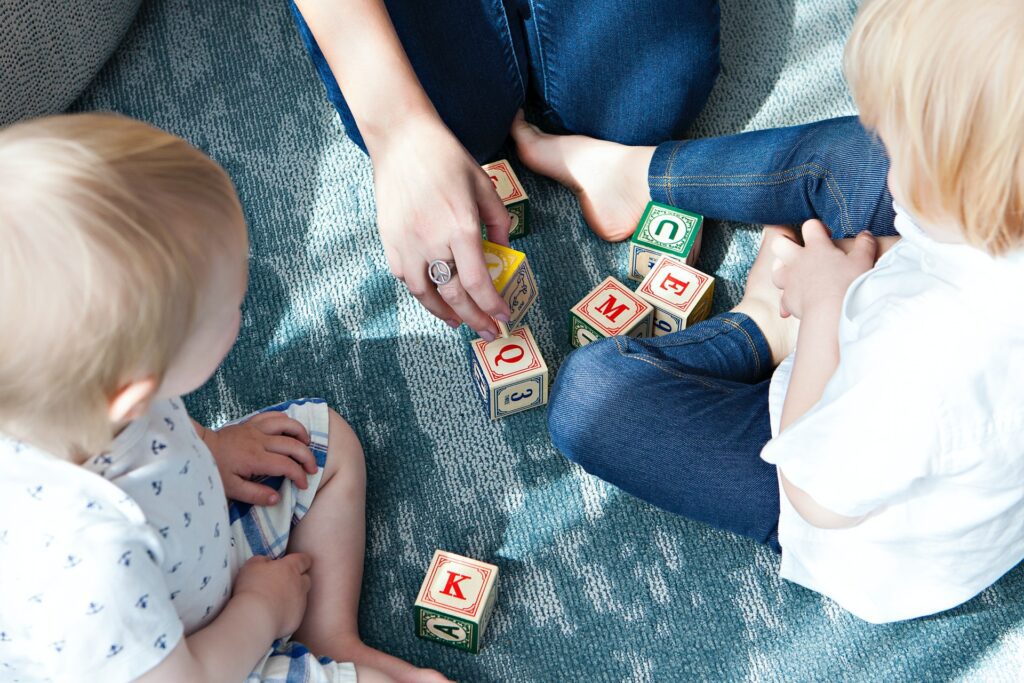Last month, we discussed the importance of resilience and 11 methods to build your resilience. That’s because resiliency can be a powerful tool to help you overcome your fear of failure and persevere through adverse times in your life.
And it’s not just us at Compassionate Minds Therapy who believe in the power of resilience. Take it from two-time NBA MVP Steve Nash. In late 2018, Nash discussed the importance of resilience when judging a young player’s potential.
“Confidence is important, but resilience is the most important thing. So, while I didn’t always have confidence, I had resilience. I really think it’s something that should be taught when you’re 12-years old or younger… to message it to your kid, ‘we’re going to develop our resilience muscle.’”
To Nash and organizations like the Barcelona football team, resilience is the number one predictor of success. That’s why it’s a skill we should work to develop not just in ourselves, but in our children too.
Still, like almost any tool, resilience can be abused and misused. So, in today’s article, we will deep dive into the potential dark sides of a focus on resilience. Additionally, considering this dark side, we’ll tell you how to teach resilience in your children without imparting these potentially adverse outcomes.
Teaching Resiliency to your Children
If you’re following the advice of Steve Nash and others, you’ll want to begin teaching your kids about resilience sooner rather than later. But how do you help your children learn about resilience in a simple and healthy manner? Here are seven ways you can develop resilience in your children:
1.) Cultivate Empathy
When your child struggles or something terrible happens to them, they need to know that you understand their feelings. Instead of “Oh, that’s awful! What are you going to do?” it’s better to talk about their feelings directly, “That sounds painful/difficult/scary.”
Even if the child is responsible for the struggle or did something incorrectly, they first need your empathy. Remember, empathizing with them doesn’t mean you condone their behavior; it’s simply recognizing and validating their feelings.

By validating their feelings, you help your child understand that these feelings aren’t upsetting or infuriating for you. In turn, your child will eventually internalize this message – their feelings are valid – which will help build self-esteem and emotional resilience for the future.
2.) Don’t Hide them from Stress
Biological psychiatrist Dennis Charney has dedicated his life to studying multiple types of people who’ve lived through traumatic experiences – such as being a prisoner of war or surviving a natural disaster. Through these studies, Charney has identified several factors that help explain why some people bounce back from this trauma while others don’t.
According to Charney, a key factor is being the kind of person who embraces tough challenges rather than trying to avoid them. He recommends giving children challenges they can just about manage to develop resilience in your kids.

Once they’ve achieved these challenges, raise the bar a little each time. Exposing children to controlled stressful experiences helps them develop psychological coping tools to draw upon into adulthood.
3.) Teach Problem Solving
As discussed in our initial post about resilience, mistakes or “failures” are often the best opportunities for us to learn and grow. Still, it’s challenging to decipher how it can help you improve in the future when faced with failure. So, as a parent, try to model this learning for your children and teach them to think through complex issues.
You can use techniques to help your kids’ problem solve such as brainstorming, role-playing, and speculating. Each of these techniques helps your child think through a thorny issue without directly telling them how they should approach a particular situation.
4.) Choose your Words Carefully
As a parent, how you talk to your children is vital to encouraging a growth mindset which aids resilience. According to Stanford professor and author Carol Dweck, to drive success in our children, we should “praise the effort that led to the outcome or learning progress,” instead of praising effort more broadly or achievement alone.

Similarly, per a study published last year in Child Development, “Setbacks and difficulties are common features of children’s experience throughout development and into adulthood.” So, it’s essential to examine the effects of category labeling – such as “being smart” or “being a helper.”
For example, the study mentioned above found setbacks were more detrimental to a child labeled “a helper” than one asked, “to help.” It seems small, but even such a change as to how you’re addressing your child can significantly impact in their resilience. So, if you want your kids to endure inevitable setbacks better, resist asking them to “be” anything concrete, such as “my little helper.”
5.) Make Meaning
After empathizing with your child, it’s also essential to discuss the situation further, precisely what happened and why. Reviewing the problem will help them feel less upset or overwhelmed about it. You helping them make meaning of what happened and why also gives your child a better understanding of the wider world.
Remember, how you help your child make this meaning will largely depend on the situation and their age. Still, in general, the more questions you ask and the fewer answers/opinions you give, the better. When children feel they’re in charge of making sense of their own world, they feel more in control and confident. This control and confidence help boost resilience.
6.) Teach Self-Regulation
Self-regulation is the act of analyzing and setting specific task-related goals, monitoring & evaluating your performance, managing your emotions, and learning from whatever went wrong. Teaching your children to regulate how they respond to adversity or setbacks is key to fostering resilience.

A 2017 study in Frontiers in Psychology found a positive correlation between learning self-regulation and resilience. Per this research, participants who were better able to learn from their mistakes – a vital aspect of self-regulation – had a greater tolerance for negative situations (aka they demonstrated greater resilience).
7.) Learn to Tolerate Uncertainty
Control is an illusion. When you sit down and think about it, there are alarmingly few things you can completely control in life. Death, disease, natural disasters, and accidents are examples of things we have virtually no control over. Still, in these instances, empathizing and making meaning with your child is vital to helping them feel less scared and alone.
Reinforcing your child’s feelings – whatever they are – and sticking to the truth of life’s uncertainty can help them better tolerate not knowing. And, when possible, it’s also helpful to reassure your kid that certain uncertainties happen very rarely, are unlikely to happen to them, or that there’s still hope amidst the uncertainty. The more your child can feel safe and hopeful, among the uncertainty, the better.
The Dark Side of a Focus on Resiliency
Being resilient is vital to your mental and emotional health. Still, if you obsess over cultivating resiliency, there are several potential downsides. As with anything, it’s possible to overfocus on resiliency. And if you focus too much on resiliency, it can have the opposite effect. Here are some potential downsides to overfocusing on resiliency.

– Resilience can be Used Dismissively
A child’s parents or guardians may struggle to tolerate a child’s distress. This difficulty can lead to these adults’ using resilience as a broad brush to gloss over the pain children can endure. For example, “kids are so resilient” is dismissive at best. Such statements can also lead to inaction when protection is necessary.
Instead of using resilience as a comprehensive tool to pick someone up, identify specific qualities of resilience the individual displays. For example, discussing someone’s good communication or patience are ways of highlighting a coping strength you’ve witnessed in that individual.
– It can Carry Unreasonable Expectations
By definition, resilience means bouncing back or returning to a former state. But what happens when this isn’t possible or even probable? You could find yourself stuck trying to go back in time. Our expectations of how things ought to be can hide potential options of what could be.

It’s more realistic and hopeful to acknowledge we’re in a constant state of change instead. Accepting this reality can help us continuously adapt our minds and bodies even when reality doesn’t meet our expectations.
– Resilience Can Convey Self-Judgement
One prevalent myth surrounding resilience is that something is broken in you if you can’t adjust or adapt quickly. But this expectation that you should be stronger isn’t the type of supportive self-talk that builds resilience. Expecting yourself to be perfectly resilient, no matter the situation doesn’t actually help.
Rather, remember we’re all human. And you may need time to adjust to life’s inevitable changes. If your pursuit of resilience becomes another way for your inner self to tell you how you’re screwing up, it’s not helpful. Instead, remember that working through times of transition happens differently for everyone. And these transitions typically don’t happen overnight.
What to Focus on if Not Resilience?
Given these potential downsides, the question remains, what should we focus on besides resilience to help us overcome adversity or trauma? There are a few evidence-based steps you can take to boost your and your children’s perseverance without focusing solely on resilience.
Experience Awe
Awe – the emotion you feel in response to something or someone that’s extraordinary and challenges the way you think about the world – is powerful. It’s a component of first love that’s been shown to reduce inflammatory and disease-causing chemicals in the body.

But creating moments of awe is also one of the research-based practices you can use to build your resilience. According to Dr. Golnaz Tabibnia, a resilience researcher at the University of California – Irvine, resilience, and awe have a tangible experience.
Per Dr. Tabibnia, “Experiencing awe increases well-being and has been associated with improved stress-related symptoms and immune function.” Note, it’s essential to avoid looking for awe and instead be open to experiencing it.
According to Dr. Kirk Schneider, “If you ‘look’ for awe, you’re probably not going to find it. On the other hand, if you can be open to awe… then you are in more of a position to be grasped by it and savor its intensity.”
Pursue Growth
By its definition, resilience is the ability to return to a prior function after adversity or trauma – it means bouncing back to an original form. But what is normal? What if snapping back to your “normal” does nothing but return you to a stunted form of self. In most families, skewed or psychological roles and coping styles are learned by age three.

So, what if resilience leads you back to an older, ‘usual’ way of coping? Then the unhealthy thing for you is to be resilient. Instead, what if you pursued growth by developing new insights about yourself and new methods of grappling with life’s difficulties? While resilience is a necessary tool for success, it isn’t the end-all-be-all for recovering from adversity or trauma.
In fact, as discussed above, it can adversely impact your recovery. So, instead of just aiming for resilience, look to grow. Increase your understanding of who you are by looking at the early emotional conditioning your parents taught you. And as you work to grow, try to confront your suffering in new, healthier ways.
Get Help from a Professional
A professional therapist can help you create a new self. One that pursues personal growth copes better than before and becomes healthier. Through therapy, you can become more resilient. But therapy can also help you change how you look at this resilience and how you cope with adversity in the future.
Our team of licensed experts can help you examine your relationship with resilience and get you on track to pursuing awe, growth, and other ways to overcome your trauma. Plus, at Compassionate Minds Therapy, we work with each of our patients to create individualized treatment plans that work best for you at a time that’s most convenient for you.
So, if you’re ready to pursue a healthier and stronger self to overcome adversity better, or want help with any other mental health issue, contact a Compassionate Minds therapist today.

0 comments